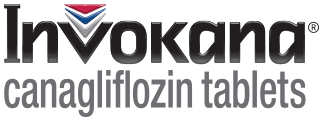 A large number of Invokana (Canagliflozin) lawsuits have been filed over the last several years. As of August 2017 the 642 actions were pending against Johnson & Johnson, Invokana’s manufacturer. The drug has proven effective in treating Type 2 diabetes, but is associated with numerous, serious side effects, including diabetic ketoacidosis, kidney damage, heart attack, and stroke. Other drugs, classed as SGLT2 inhibators have also been the subject of the warnings and lawsuits.
A large number of Invokana (Canagliflozin) lawsuits have been filed over the last several years. As of August 2017 the 642 actions were pending against Johnson & Johnson, Invokana’s manufacturer. The drug has proven effective in treating Type 2 diabetes, but is associated with numerous, serious side effects, including diabetic ketoacidosis, kidney damage, heart attack, and stroke. Other drugs, classed as SGLT2 inhibators have also been the subject of the warnings and lawsuits.
The FDA has released numerous warnings about the use of Invokana and other SGLT2 inhibitors:
- Warning for Leg and Foot Amputation: In May 2017 the FDA required that Invokana include its “most prominent” warning, a black box warning, on product packaging. The FDA stated, “Based on new data from two large clinical trials, the U.S. Food and Drug Administration (FDA) has concluded that the type 2 diabetes medicine canagliflozin (Invokana, Invokamet, Invokamet XR) causes an increased risk of leg and foot amputations.” The upgraded warning in May 2017 was based on the results of two clinical trials which showed that patients with type 2 diabetes were twice as likely to need an amputation if they took Invokana than if they took a placebo.
- Warnings for Ketoacidosis: From March 2013, when Invokana was approved, to October 2015, FDA received reports of 73 cases of ketoacidosis. Ketoacidosis is caused by the accumulation of chemicals called ketones in the kidneys. The FDA issued a warning in December 2015.
- Acute Kidney Injury: In June 2016, the FDA strengthened the acute kidney injury (AKI) warning for Invokana. The FDA received reports of more than 100 confirmed cases, some requiring hospitalization and dialysis.
- Blood and Urinary Tract Infections: In December 2015 the FDA issued a warning about a class of drugs, which included Invokana, citing a risk of serious blood and urinary tract infections. The agency cited 19 confirmed cases.
- Cardiovascular Issues and Acute Pancreatitis: Some recent studies have shown a link between Invokana, other SGLT2 inhibators and cardiovascular ailments, including stroke, blood clots (thromboembolic events) and heart attacks. In 2016 the FDA said that it had received reports of users of Invokana and other SGLT2 inhibitors suffering from cases of acute pancreatitis.
Multidistrict Litigation in Invokana (Canagliflozin) Lawsuits
As of August 2017 there are 642 cases pending under Multidistrict Litigation (MDL) (IN RE: Invokana (Canagliflozin – MDL 2750) in federal court in the District of New Jersey. Abilify cases were combined for the purpose of MDL in October 2016 to simplify and consolidate the litigation process.
Cases from around the country may be combined in a single court and judge in multidistrict litigation in order to combine and simplify pretrial discovery. If the cases are not settled or dismissed the presiding judge and parties involved may choose one or more representatives case to litigate. These “bellwether” cases offer guidance to other plaintiffs about if and how to continue.
The plaintiffs allege that “Invokana may cause a variety of injuries, including diabetic ketoacidosis and kidney damage, and that defendant Janssen Pharmaceuticals, Inc. (Janssen) [a subsidiary of Johnson & Johnson], which developed and manufactured the drug, failed to adequately test the drug and warn of its risks.”
Invokana (Canagliflozin) Uses
Invokana helps patients with type 2 diabetes control blood sugar levels. It works by aiding the kidneys in removing glucose from the body. It does this by blocking SGLT2 carriers that normally help reabsorb and release glucose back into the bloodstream. When patients use Invokana, they excrete excess sugars through urination, rather than the sugars building up in their bloodstream.
How Invokana (Canagliflozin)Works
Invokana and other other SGLT2 work by ensuring that excess glucose in the bloodstream is not reabsorbed by the kidneys and is instead taken out of circulation and excreted in urine.
